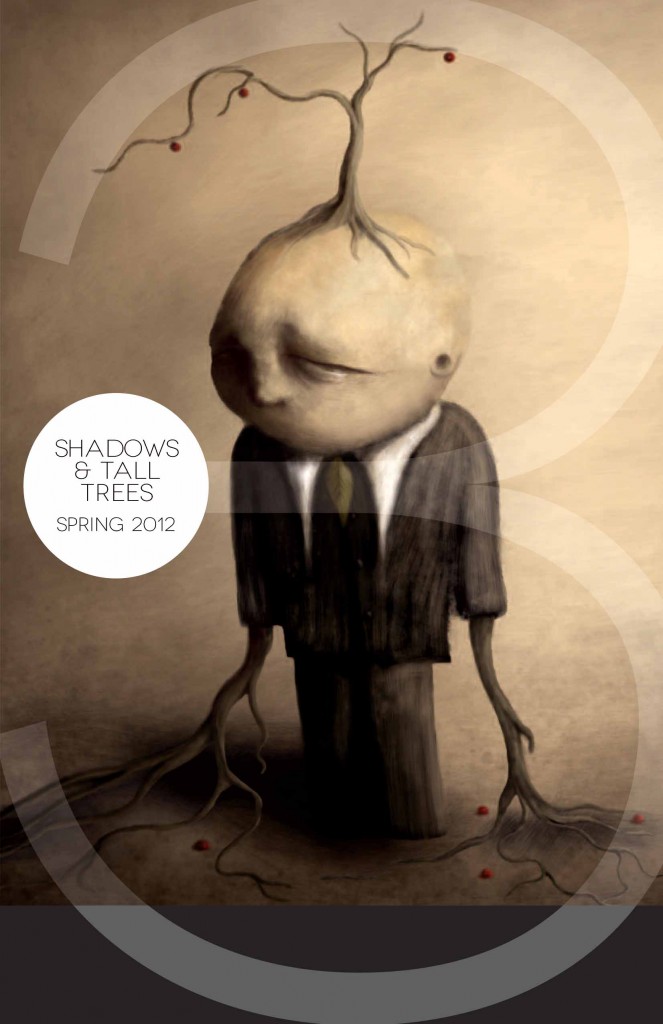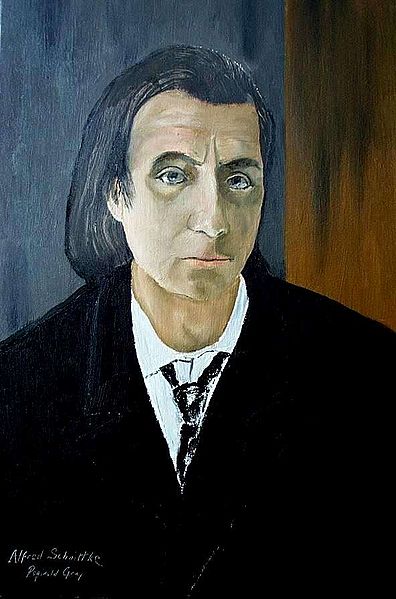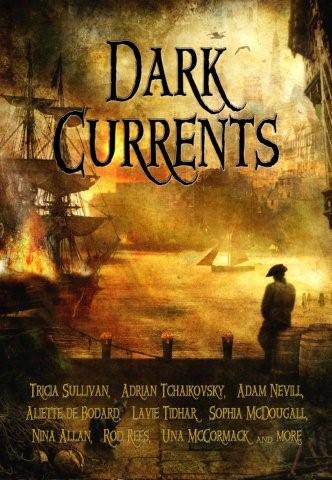On Monday of this week, the good people at Torque Control launched their by now traditional annual contest to guess the shortlist of the Arthur C. Clarke Award by selecting from the list of all eligible submissions. This year there are sixty novels in contention, and here is my shortlist of six:
Dead Water Simon Ings
The End Specialist Drew Magary
The Islanders Christopher Priest
The Testament of Jessie Lamb Jane Rogers
Osama Lavie Tidhar
The Godless Boys Naomi Wood
Awards tend to generate controversy. Last year saw both the biggest Booker debàcle since the inception of the prize, and the total meltdown of the British Fantasy Awards. One spectacle may have taken place on a smaller stage than the other, but in both cases the bloodletting was furious. Part of the problem seemed to be a confusion over what literary awards should be for. Last year’s Booker judges seemed to believe that novels should exist primarily for the purposes of middlebrow entertainment, while certain elements within the British Fantasy Society seemed happy to see the BFS awards reduced to a popularity contest. While the idea that anyone on the BFS committee was complicit in any actual wrongdoing was preposterous and the scapegoating of individual nominees was unfortunate and unfair, the changes to the awards system brought about by the BFS palace revolution were desirable and necessary and we will hopefully see the BFAs regaining some measure of value and credibility as a result. With the Booker I’m not so sure. The judges this year will probably be a tad more hardcore, but my guess is that the change will be short lived. The literary mainstream in this country, terrified of being charged with elitism, tends to pander to the middle ground. More and more regularly we see Booker shortlists crammed with works that fail to challenge the reader on any level. These are books that conform. It is a literature of obedience, the kind of books you can read in your lunch hour or at the airport then forget about immediately afterwards. It’s literary television.
The Clarke Award is different. There is always a genuine excitement around this time of year, not only over who is going to win, but about which books have been submitted, and what that says about the shifts and developments in speculative fiction generally. SF is not just a broad church, it is an evangelical one. Readers of speculative fiction by their very definition seek to have their assumptions challenged, and for the kind of SF writer in the running for the Clarke Award, their life’s main purpose is to use each new book to push at the boundaries of what literature can do and what words can say. As with any literary genre including the mainstream there is a conservative wing of SF, writers who seem content to give the reader more of what made them happy the last time, but they are increasingly unlikely to be in the running for the Clarke.
The Clarke has been attracting more and more attention of late. It now has its own page at the Guardian website, and several of the major literary festivals have recently included SF strands in their programmes. As more young writers step across from the mainstream, less worried about being tarred with the geek brush than Margaret Atwood and Jeanette Winterson, happy to mix genres and break boundaries in much the same way as young composers have been eager to incorporate elements of jazz, hiphop and world music into their classical compositions, so SF finds itself becoming less typecast and ever more adventurous.
What is the Clarke Award for? As the one award that sets out specifically to reward innovation and the pushing of the literary envelope, I believe it’s the most radical award out there and therefore the most worthy of notice. Mainstream pundits who still believe that heartland SF is great when it comes to ideas but conservative and usually incompetent when it comes to literary expression and the refined use of language clearly have not read Ian McDonald or Simon Ings. Those advocates of nineteenth century realism who insist that SF has nothing to say about character or the human condition have obviously had no contact with the work of M. John Harrison or Ian R. MacLeod. Cynical postmodernists who claim that SF has no interest in literary form should have a read of Christopher Priest’s The Islanders or Steve Erickson’s The Sea Came in at Midnight.
What matters most about the Clarke is not who wins, but that it acts as a showcase for what is happening in SF now. As such, I believe it should take a pride in presenting writers who are prepared to risk themselves intellectually, stretch themselves imaginatively and hone their skills as writers to produce works of artistic originality and lasting literary power. In putting forward my own guesses at the six books that will make up this year’s Clarke Award shortlist I’ve tried to reflect these ideals. There are some interesting omissions.
The first thing you’ll probably notice is that I haven’t included China Miéville’s Embassytown on my list. Mainly this is because I was disappointed by the final third of the book. I thought the premise was intriguing, and I enjoyed the setup a great deal. I found Miéville’s working out of his ideas about truth and language to be original and on occasion genuinely beautiful. As a writer I admire Miéville’s imaginative reach and stylistic originality and I admire Embassytown because it’s a novel that was clearly intended to break new ground in SF and to a point it succeeds. However, I found the ending – a kind of ‘last battle’ that appeared to have been grafted on in an attempt to add some blood and thunder to a book that is essentially an intellectual pavane – to be rushed and unconvincing. Everything happened way too quickly and was resolved too easily. SF doesn’t demand a traditional happy ending, and I found the easy assumptions of Embassytown’s conclusion sharply at odds with the more questing, ambiguous tone of the bulk of the text. This book had the potential to be better than it finally was and I think China would have done well to recast the ending in a more ambiguous tone.
I’m an admirer of Ian R. MacLeod’s work, but I feel his decision to cast Clark Gable as the protagonist of Wake Up and Dream has his latest novel stymied somewhat. There’s some lovely writing here and the noir elements work well but you cannot escape the sense of being trapped in someone else’s joke. It’s all a bit flat on the page, and the characterisation never truly comes to life. I know this is kind of the point of it, but with regret I have to strike it from my list.
I enjoyed Nicholas Royle’s Regicide very much indeed, but the book is clearly dark fantasy and should not be included here. Helen Oyeyemi is a writer I feel deeply in sympathy with. I love her work, and Mr Fox is possibly her finest achievement to date, but once again if I had to call it anything it would be fantasy/slipstream and not SF, so I can’t elect it.
Colson Whitehead’s Zone One is elegantly written and sets out to be emotionally affecting. I started by wanting to admire this novel, but in the end I found its overly mannered, ornate style to be seriously out of keeping with its subject matter. Whichever way you look at it, you can’t get away from the fact that Zone One is just another zombie novel, a late addition to a shelf now so heavily laden it has worked itself loose from the wall and crashed into the abyss. No matter how gorgeously you dress it up, a zombie remains a zombie: a worn out horror trope that is not frightening, not interesting, and – forgive me – long dead.
As for the Stephen King, I haven’t read enough of it yet to be able to judge whether it is SFnal in any true sense of the word. From where I stand at the moment it appears to be just a portal novel – fantasy, not SF, and although I frequently cite King as being the finest storyteller alive on the planet today, I think that 11.22.63 would be the most boring choice for the Clarke ever. King hardly needs further promotion, and awarding him the prize would do nothing for SF whatsoever.
So on to my guesses. I came to Simon Ings’s Dead Water through Martin McGrath’s recommendation and I am impressed. His incisive, clear-eyed extrapolation of complex ideas, together with his dextrous use of language and imagery has a stylistic virtuosity reminiscent of Ian McDonald. The novel’s characters are shockingly alive, and with its complex, many-stranded narrative Dead Water is as well constructed and compelling as a movie by Iňárritu.
I loved Lavie Tidhar’s Osama. The concept is superb – an idea any writer would kill for. But it doesn’t stop there. Tidhar is a wonderful writer, as bold and beautiful in his use of words as he is radical and brave in his deployment of uncomfortable truths. He is an artist of intellect who is not afraid of writing from the heart, a rare and valuable combination that should be rewarded.
Jane Rogers’s The Testament of Jessie Lamb is a near-near future catastrophe novel that ably employs science fictional ideas to chart a young girl’s evolving understanding of the world she lives in. I heard Jane Rogers speaking about Jessie at the Cheltenham Literature Festival while the novel was still in its infancy, where she expressed her enthusiasm for the novels of John Wyndham, whose writing she felt as a guiding inspiration behind this book. Jessie is not remotely imitative of Wyndham, but with its involving first person narration and its close examination of a thought-provoking ‘what if?’ scenario it does have something of that addictive Wyndham vibe about it. Most of all I love its prose, which is simple, direct, and quietly poetic. It’s a clear contender.
If Jane Rogers’s book contains echoes of Wyndham, Naomi Wood’s The Godless Boys explores themes of spirituality and faith that remind me of Keith Roberts’s great 1968 novel Pavane. Like Pavane, it’s set in an alternate Britain where after bitter political upheavals religious belief has become the defining characteristic of the social order. Atheism has been outlawed, and the ‘Godless Boys’ of the title are now exiled to a remote island. Wood’s novel is sensitively written, and takes a brave step in its exploration of contentious themes. This is a debut of merit and interest and Wood herself is clearly a writer of serious intent. This book would be a worthy addition to the shortlist and the Clarke judges would do well to include it.
I started reading Drew Magary’s The End Specialist and became immediately hooked. I loved the ‘found footage’ element because I always love found footage elements and because it lent the novel a trace of the metafictional. Besides that, I happen to envy writers like Magary who are able to achieve, seemingly without effort, a style that is so natural and loosely flowing, that chatty American vernacular. Perhaps it’s simply because I can’t write like that myself. It’s the opposite of what I do and I’m jealous. It goes on the list.
People are bound to wonder whether I am able to comment objectively when it comes to Christopher Priest’s The Islanders. What I would say in reply to that is that Priest’s novels had been delighting me for many years before Chris and I met, and the qualities that made me shout about them – a prose that is limpid, beautifully crafted and a delight to read, ideas that could have come from no one else and that changed the very ground rules for what speculative fiction could aspire to, all encased within a formal perfection that makes his novels increase in power with every subsequent reading – have never been more powerfully persuasive than they are in The Islanders, and that this novel deserves to be classed as a landmark in British speculative fiction. Like all Priest’s books, it subverts the very notion of science fiction even as it delights in it, and makes us re-evaluate what we are looking for when we read SF, or indeed anything else. By deconstructing the novel, Priest makes it exciting again. I love this book!
Any or all of these six novels could have – and by God, should have – graced the Booker shortlist. They shine as literature every bit as much as they succeed as SF. It is precisely works like these that the Clarke Award exists to promote. It’s quite simply fantastic to observe how much the SF community values and is galvanised by the concept of the written word. The level of informed discussion and speculation surrounding the Clarke Award is a perennial delight to me, and our huge thanks should go out to Tom Hunter, to the Clarke judges, and to Torque Control for providing us yet again with such a marvellous forum for debate. The Clarke Award discussion thread is here, and you still have a week to post your own guesses.
The Clarke Award shortlist will be released towards the end of March, and the winner will be announced as part of SciFi London on May 2nd.


